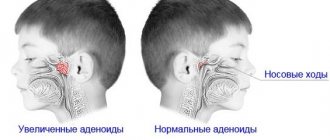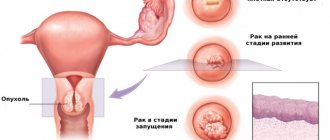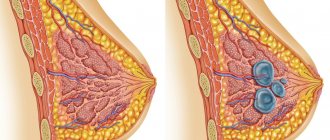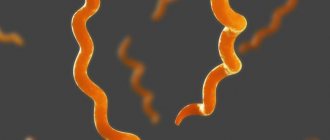Senile dementia (senile dementia) is a disorder of higher nervous activity that develops in older people and is accompanied by a decrease in cognitive skills and loss of acquired knowledge. Mental processes are improved throughout life, and knowledge can be obtained both practically (empirically) and theoretically. Neurophysiological processes occur both in the cerebral cortex and in subcortical structures, which determines the clinical picture in many mental and neurological diseases.
Senile dementia is most often observed in people over 65 years of age, but the disease is rapidly becoming younger. There are isolated cases of dementia in people of mature age (about 50 years old), which should not be normal. If age-related dementia is to some extent a normal physiological process due to the death of nerve cells, many concomitant diseases and lifestyle, then dementia that occurs in people 50-60 years old should already be alarming. But not everything is so bad; senile psychosis progresses slowly if timely therapy is prescribed. Such patients are observed by neurologists and psychiatrists.
Causes
Diseases of old age represent a fairly large group of diseases. It is rare that an elderly person is not influenced to one degree or another, and senile psychosis is no exception.
Causes of senile dementia:
- Genetic predisposition;
- Excess body weight;
- Sedentary lifestyle;
- History of smoking and alcohol;
- Hypovitaminosis;
- Neurological diseases (Parkinson's disease, Alzheimer's disease);
- Poor blood supply, previous strokes;
- Systemic diseases (hypothyroidism, diabetes mellitus);
- Traumatic brain injuries;
- Past infectious diseases of the central nervous system (poliomyelitis, meningitis, encephalitis);
- Pathology of the cardiovascular system (atherosclerosis, hypertension); Immunodeficiency;
- Heavy metal poisoning (zinc, copper, aluminum);
- Irrational use of medications (neuroleptics, barbiturates);
- Organic brain damage;
- Oncological diseases.
Of course, an unhealthy lifestyle or a deficiency of vitamins in the diet is not enough. Senile dementia is the result of the influence of several factors at once; in approximately 90% of cases, its occurrence is caused by organic brain damage due to circulatory disorders, atrophy of the cerebral cortex in Alzheimer's disease.
Classification
According to the nature of the flow and start time:
- Presenile. Begins before age 65 and is characterized by decreased cognitive abilities, speech and reading disorders, and deterioration of practical skills;
- Senile. Starts after age 65. Progresses slowly, and the leading symptom will be memory impairment.
RELATED MATERIALS: How to recognize mental retardation (debility) in a child
By severity
- Early dementia (initial). Disorientation in space, slowness in performing everyday activities, deterioration in financial calculations, fixation on the same things;
- Moderate. Memory impairment progresses, patients no longer recognize relatives, practical skills are lost;
- Severe dementia. The patient cannot communicate normally, forgets words, and is always in bed. He cannot take care of himself and involuntarily empties his bowels and bladder.
Atrophic senile dementia
Symptoms of dementia in older adults can range from mild to severe. Senile dementia is characterized by memory impairment and disorientation in space and time. Sometimes there is a speech disorder, slowness of thought processes, and loss of practical skills. Senile forgetfulness is interesting because older people do not remember what happened relatively recently. And they remember the events that happened to them decades ago. This observation fits perfectly into Ribot’s law, according to which short-term memory is impaired in elderly people and only then long-term memory.
Functional psychoses of late age rarely develop, since in more than 90% of cases patients have either atrophy of the cerebral cortex or vascular disorders, that is, these are already mental disorders of late age.
Mental disorders in the elderly manifest themselves in the form of delusional experiences, depression, insomnia, and aggressiveness. Sometimes, against a background of constant tension, hallucinations occur. In the early stages of the disease, they can hide their diagnosis, although they still retain criticism of their condition.
At what age does it occur?
Dementia does not necessarily appear with age, and in recent years it has become increasingly “younger”. The term “early-onset dementia” means the onset of the disease in people over the age of 35, and sometimes a little younger.
Fortunately, the pathology is not very common: about 48 million patients are registered in the world, and young people make up only 15-20% of this figure.
The most common causes of illness in young people:
- brain injuries and tumors;
- critical lack of vitamin B12, B3 and folic acid in the body;
- severe forms of addiction (alcoholism, gambling, drug addiction, etc.);
- heart attack;
- multiple sclerosis;
- some infectious and inflammatory diseases (meningitis, AIDS, etc.);
- stroke;
- problems in the functioning of the thyroid gland.
Sometimes, dementia can be caused by Alzheimer's disease. Often, it occurs in people aged 20 to 50 years, and is exclusively hereditary. But there are very few such cases in the world, no more than 5%.
In patients 30-45 years old, vascular or frontotemporal dementia is more common. With the latter, the anterior lobes of the cerebral cortex completely atrophy, and disturbances in behavior, gait and speech are noticeable at a very early stage.
Vascular lesions are accompanied by anxiety, severe depression, repeated strokes, and urinary incontinence.
Vascular senile dementia
Signs of dementia in the elderly, which are associated with vascular disorders, are slightly different from the atrophic form. The first symptoms are often absent-mindedness, an inability to concentrate on simple things. Such patients are emotionally unstable, prone to depression, headaches and sleep disorders. Sleep duration is usually reduced. They sleep little and wake up early, which further aggravates their mental state. In some cases, they may sleep almost the entire day, again waking up lethargic and sleep deprived. The memory disorder is not so obvious and may not manifest itself for many years. If a person has suffered a stroke, then in addition to such clinical symptoms, he will experience paralysis, paresis, and speech impairment. Despite this, criticism of his condition is preserved. A person wants to get help, so he often turns to doctors. In the later stages there is no criticism.
RELATED MATERIALS: Idiocy as profound mental retardation
Symptoms and signs
The main symptoms of senile dementia have several important subtypes that need to be correctly diagnosed, since each of them requires an individual approach in terms of different aspects. The main diagnostic criterion is related specifically to cognitive functions.
Senile dementia ICD 10 is diagnosed precisely in the presence of a disorder of the brain, which is obvious in memory and intelligence disorders; it is according to these criteria that the diagnosis of dementia is made. And depending on what kind of person she is, this diagnosis can vary.
The main symptoms of senile dementia are manifested in a decrease in memory function, and all types of memory are gradually affected. The first minor impairments in memory function become an alarm bell for many, but not everyone attaches importance to the disorder. Although most people retain critical thinking in the first stages of the disorder and begin to notice that something is wrong with them, this cannot but upset them, and therefore at this stage of senile dementia a depressive state of varying severity often develops.
Symptoms of senile dementia, manifested in memory disorders, are gradually modernizing. At first, this pathology captures and affects some minor functions; minor, unimportant, recent memories are disrupted. But this already greatly reduces working ability and is quite frightening. RAM suffers quite quickly, which greatly reduces the working functionality of such a person. Criticism, which is preserved in this state, is not beneficial, since most individuals try to hide their problem; they are afraid to believe that their memory is dying. In addition, they are angry about this state because of the impending helplessness, and also because relatives also slowly notice this and try to discreetly take care of them. At this stage, intellectual abilities are not affected, there are simply some inconveniences associated with the impairment of certain memory functions.
When deeper structures are damaged, deeper layers of memory may also suffer, which slowly erases the individual’s familiar personality. In this case, memory lapses may appear, which can be replaced by various fictitious, often even fantastic events. The first function associated with intelligence that suffers with this type of disorder is learning. Such patients are no longer able to learn skills; cognitive skills are becoming increasingly difficult for them. Gradually, with damage to deeper and deeper layers, a person begins to lose an increasing number of memories. Professional skills and knowledge about one’s own personality remain the most profound. Over time, if not properly cared for, such individuals may pose some danger by forgetting to turn off the gas or leaving home and not remembering the way back.
Signs of senile dementia have another group, which manifests itself in personality changes. Such individuals become self-centered, like children. They are difficult to control and overly emotional. At first they are very irritable, can be whiny, and have incontinence of emotions. Over time, their character only worsens, and all the negative traits of youth appear with maximum force.
In addition, the patient becomes very “severe” in the last stage of senile dementia. He may be untidy with his feces and act very wild. In addition, such individuals may lose all self-care skills, which greatly aggravates the possibility of such people living. They require full care, just like children. Undoubtedly, this is a great burden for the family. Considering that such individuals may also have psychotic symptoms, they become very dangerous.
Senile dementia according to ICD 10 has 2 forms, with and without psychotic manifestations. The psychotic form is accompanied by hallucinatory experiences and delusions. Moreover, the hallucinations are quite vivid and capture a large number of analyzers. Delirium has an involutionary genesis and is often associated with thoughts about poisoning, theft, and similar thoughts.
Diagnostics
Diagnostic measures are aimed at finding out the cause that led to the development of dementia. An examination by a neurologist and psychiatrist is required. The neurologist checks tendon reflexes, the condition of the spine, pain and temperature sensitivity. A CT and MRI examination of the skull, REG, EEG, and radiography of the spine are performed. The psychiatrist assesses the patient’s psycho-emotional state, whether he has speech impairment, memory impairment, or spatial disorientation. The diagnosis can be difficult because in some cases patients experience hallucinations and delusions, which can be confused with schizophrenia, especially if the patient has developed presenile dementia. It is necessary to exclude psychoses associated with taking certain medications. Thus, a history of treatment with antipsychotics can cause toxic psychosis.
Varieties
The following main types of dementia are distinguished:
- Alzheimer's type,
- dementia with Lewy bodies,
- vascular,
- alcoholic,
- children's,
- senile
Each type of disease has its own characteristics and symptoms.
Alzheimer's type dementia
Alzheimer's disease often manifests as dementia. The main symptom of the disease is memory impairment. Moreover, the first problems can begin long before the main symptoms of dementia appear. The person begins to notice impairments in short-term memory, but at the same time he retains a critical attitude towards the deteriorating condition, and he consults a doctor for advice.
In dementia of the Alzheimer's type, memory problems develop in the following sequence:
- deterioration of short-term memory,
- problems remembering recent events.
Events from the distant past, such as childhood or student years, remain in the patient’s memory for the longest time.
Often, as the disease progresses, the patient loses a critical attitude towards his condition. Many patients experience false memories, when real events are replaced by fictitious ones.
The progressive disease also affects the psycho-emotional sphere, changes in the patient’s personality begin to occur. The first manifestations are:
- conflict,
- excessive grouchiness,
- egocentrism,
- suspicion.
Further, delusions of damage specific to this type of dementia develop. The patient begins to suspect those around him of wanting to harm him, for example, steal personal belongings or savings, poison, etc. Patients with acquired dementia of the Alzheimer's type are characterized by such deviant tendencies as gluttony, sexual promiscuity, wandering syndrome, fussy, meaningless behavior, for example, shifting things from place to place.
Already at a severe stage of the disease, all of the above symptoms disappear. Patients completely lose interest in life and do not feel the need to eat.
This type of disease leaves no chance of recovery; it progresses steadily. As a rule, within 10 years after the first signs of dementia of this type are identified, complete dementia develops, leading the patient to death.
Dementia with Lewy bodies
If dementia of the Alzheimer's type ranks first in prevalence, then dementia with Lewy bodies ranks second.
This type of dementia is caused by specific protein formations in the neurons of the cerebral cortex.
In the initial stages, this type of dementia is similar to the manifestations of Alzheimer's disease or vascular dementia. Dementia with Lewy bodies is characterized by decreased concentration and movement disorders, similar to the manifestations of Parkinson's disease. Patients often become depressed.
The difficulty concentrating is so severe in Lewy body dementia that even mild mental workload becomes unbearable. A progressive disease prevents a person from concentrating on the task at hand. The development of this type of disease also leads to delirium:
- damage,
- doubles,
- persecution.
In severe form, due to the complete impossibility of intellectual activity, these symptoms disappear. Specific symptoms of this disease include:
- fluctuations,
- visual disturbances,
- sleep problems.
Fluctuations are sharp, reversible disturbances in intellectual and motor activity. Most often, patients complain of memory impairment. Fluctuations can be small or large.
With small fluctuations, it is usually difficult for the patient to concentrate on something, and concentration suffers. With large fluctuations, a person is not able to recognize familiar places or remember the names of familiar objects. In a particularly severe form, this leads to complete disorientation in space and confusion. Fluctuations can last from several days (2, 3) to two weeks. When leaving this state, intellectual functions are restored. But at the same time, their decline is observed. Fluctuations and periods of normal state alternate, and remission lasts as long as the pathological episode.
Visual disorders are manifested by illusions and hallucinations. Violation of orientation in space becomes the cause of illusions. They are especially strong at dusk or darkness.
Visual hallucinations in this type of dementia, as a rule, disappear when the patient tries to contact or otherwise interact with them. Visual hallucinations in this type of dementia can be combined with auditory hallucinations.
More often, patients hallucinate during periods of large fluctuations.
Problems with sleep are expressed in disturbances of the active phase of sleep. At the very beginning of the disease, this manifests itself as nightmares or complaints of insomnia. In the later stages of this type of dementia, patients make sudden movements during sleep, which can result in injury.
Dementia with Lewy bodies is also accompanied by the following disorders of the autonomic nervous system:
- fainting,
- a sharp drop in blood pressure when standing up,
- constipation,
- urinary retention.
This type of dementia develops very quickly.
Vascular dementia
Vascular dementia is of two types:
- caused by the consequences of a stroke,
- developed due to chronic disorders of the blood supply to the brain.
In the case of post-stroke vascular dementia, in addition to signs of impairment in the intellectual sphere, neurological impairments such as speech problems (dysarthria) and paralysis predominate.
With dementia that has developed against the background of insufficient blood supply to the brain, dementia is clearly expressed, neurological manifestations are less characteristic and not so clearly expressed.
The first symptoms of vascular dementia are expressed in:
- absentmindedness,
- fatigue,
- inability to concentrate
- rigidity of thinking,
- decrease in analytical qualities,
- difficulties in planning.
Compared to dementia of the Alzheimer's type, memory is less affected. The patient manages to remember the necessary information if he is asked leading questions.
Emotional instability is one of the hallmarks of vascular dementia. As a rule, the patient arrives in a bad mood, cases of depression are common, and in some cases subdepression occurs. People suffering from this form of dementia experience frequent mood swings, when joy abruptly gives way to tears and vice versa.
Another characteristic symptom of vascular dementia is gait disturbance.
Since vascular dementia caused by circulatory disorders develops as a concomitant disease against the background of hypertension or atherosclerosis, it progresses rather slowly. With timely identified symptoms and complete treatment of both dementia and the underlying disease, the prognosis for the patient is favorable.
Alcoholic dementia
Alcoholic dementia is the third (last) stage of the development of alcoholism. It develops in cases where a person abuses alcohol for a long time, 15 years or more.
The disease manifests itself in pathological changes in personality (coarsening, a completely destroyed value system, primitivism of thinking). Violations in the intellectual sphere (problems with memory, thinking, concentration) are also clearly visible.
Childhood dementia
Childhood dementia is usually a concomitant disease that develops against the background of schizophrenia, mental retardation or other mental disorders. Symptoms of childhood dementia are:
- decreased mental activity (problems with remembering information),
- loss of memory of a certain number of facts,
- disorientation in space,
- time disorientation
- loss of acquired skills (for example, speech),
- loss of skills related to hygiene and neat appearance,
- loss of control over bowel movements and urination.
Dementia can also develop in early childhood due to traumatic brain injury or previous infections (meningitis).
Senile dementia in older people
Senile or senile dementia is the main cause of dementia in older people. For what reasons in most cases is senile dementia called:
- Alzheimer's,
- vascular,
- mixed dementia, which is characterized by manifestations of the first two types.
Treatment of senile dementia
Treatment of dementia in older people is carried out by a neurologist. If necessary, consultation with other specialists is possible. First, the underlying disease is treated, and then senile dementia. The use of drugs that have an antioxidant effect, improve cerebral circulation and neurometabolic stimulants is indicated. Additionally, antidepressants, sedatives, and tranquilizers are prescribed if there are pronounced clinical symptoms. Treatment of senile dementia is not limited to drug therapy alone. To overcome this disease, you need to consult a psychotherapist who will help you cope with the problem. Auto-training, self-analysis, and art therapy bring good results. The main thing is a warm attitude towards a person with dementia. Care and love are the best things you can do for him!











